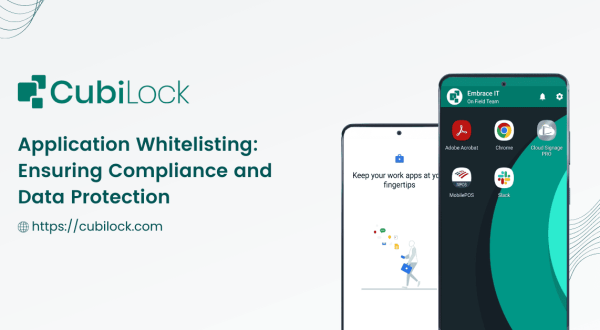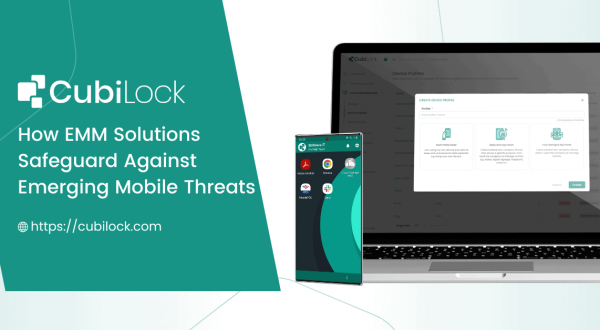The Importance of IT Service Management Software for Modern Businesses
- October 13, 2023

Modern businesses are ever-evolving and the role of technology has become increasingly significant in improvising, evolving, and optimizing growth. With the growing reliance on digital infrastructure, managing IT services effectively is no longer a choice but a necessity for organizations of all sizes. This is where IT Service Management (ITSM) software steps in to play a pivotal role. In this article, we will explore the importance of IT Service Management software for modern businesses, its benefits, and how it can streamline operations, improve customer satisfaction, and drive growth.
Understanding IT Service Management Software
IT Service Management, often referred to as ITSM, is a set of practices, policies, and processes designed to manage, deliver, and support IT services within an organization. ITSM aims to align IT services with the needs of the business, ensuring that technology not only supports but also drives the business goals and objectives.
IT Service Management Software, on the other hand, is a category of software tools and solutions specifically designed to facilitate and automate ITSM processes. These tools help businesses streamline their IT service operations, ensuring that IT services are delivered efficiently and effectively.
The Changing Landscape of Modern Business
Before delving into the importance of IT Service Management Software, it’s essential to understand the context in which businesses operate today. Several key factors have contributed to the increased importance of ITSM in modern business:
Digital Transformation
The advent of the digital age has transformed business operations. From customer interactions to internal processes, digital transformation is at the core of modern businesses. To thrive in this environment, organizations need robust IT services that are agile, scalable, and reliable.
ITSM software plays a critical role in ensuring that these services are not just operational but also aligned with the organization’s digital goals. It helps businesses adapt to the digital age by providing the tools needed to manage and optimize IT services.
Increasing Complexity
IT infrastructures have grown increasingly complex. With cloud computing, mobile technology, and an array of software applications, managing IT services has become a challenging task. ITSM software simplifies this complexity by providing a centralized platform for managing all aspects of IT service delivery. Enterprise Mobility Management solution also plays a crucial role in ITSM, it enables IT admins to manage, secure, and control mobile devices like smartphones, tablets, and laptops from a single console.
Growing Customer Expectations
In the age of e-commerce and digital services, customer expectations have skyrocketed. Customers demand quick responses to issues, minimal downtime, and a seamless user experience. ITSM software empowers businesses to meet these expectations by improving service delivery, reducing downtime, and enhancing customer support.
Regulatory Compliance
Many industries are subject to strict regulatory requirements regarding data security and IT operations. ITSM software includes features that can help businesses maintain compliance with these regulations, reducing the risk of fines and legal issues.
Remote and Hybrid Workforces
The COVID-19 pandemic has accelerated the trend toward remote and hybrid work. ITSM software enables organizations to manage IT services for employees working from various locations while maintaining security and productivity. Onboarding remote employees and managing devices remotely is also significant for businesses.
The Importance of IT Service Management Software
Now, let’s dive deeper into the importance of IT Service Management Software for modern businesses:
Enhanced Efficiency and Productivity
One of the primary benefits of ITSM software is improved efficiency. It automates various tasks, reducing manual labor and the likelihood of errors. These efficiency gains extend to IT support, where the software can automate issue tracking, routing, and resolution.
Additionally, ITSM software provides a central knowledge base, making it easier for IT staff to access and share information. This leads to faster problem resolution, ultimately increasing overall productivity.
Improved Incident Management
In a modern business, IT incidents are not just annoyances; they can result in significant financial losses and damage to reputation. ITSM software provides a structured approach to incident management, ensuring that issues are identified, categorized, prioritized, and resolved promptly.
Furthermore, the software often includes incident tracking, which allows organizations to analyze recurring issues and identify opportunities for process improvement.
Effective Change Management
As businesses evolve, changes to IT infrastructure are inevitable. Whether it’s deploying new software, hardware upgrades, or changes to network configurations, ITSM software offers change management capabilities to ensure that all alterations are documented, approved, and executed without disrupting operations.
This structured approach minimizes the risk of unintended consequences and downtime associated with changes. It also aids in compliance with regulatory requirements, especially in highly regulated industries.
Streamlined Service Requests
ITSM software simplifies the process of handling service requests. Whether it’s a request for software installation, hardware procurement, or access to specific resources, the software enables employees to submit requests through a user-friendly interface.
These requests are automatically routed to the appropriate personnel for approval and fulfillment. Such streamlined processes enhance employee satisfaction by reducing delays and improving response times.
Proactive Problem Management
In addition to managing incidents, ITSM software supports proactive problem management. It enables organizations to identify and address the root causes of recurring issues, ultimately reducing the number of incidents and enhancing the stability of IT services.
By analyzing trends and patterns in incident data, IT teams can make informed decisions on where to focus their efforts to prevent future problems.
Comprehensive Asset Management
For modern businesses, managing IT assets is critical to controlling costs and ensuring compliance. ITSM software includes asset management features that track the complete lifecycle of IT assets, from procurement to retirement.
This level of visibility allows organizations to make informed decisions regarding asset utilization, maintenance, and replacement, ultimately reducing operational costs.
Enhanced Communication and Collaboration
Effective communication and collaboration are vital in a modern business environment. ITSM software often includes features for team collaboration and communication, ensuring that IT teams can work together seamlessly, whether they’re on-site or remote.
This functionality also extends to communication with end-users, enabling IT support staff to keep customers informed about the status of their requests and incidents.
Data-Driven Decision-Making
Data is a valuable asset in modern business. ITSM software provides access to a wealth of data related to IT services, incidents, and performance. This data can be used to make data-driven decisions, optimize service delivery, and identify areas for improvement.
The software often includes reporting and analytics tools, enabling organizations to generate insights that drive strategic decisions.
Improved Customer Satisfaction
Happy customers are essential for the success of any business. ITSM software, by ensuring efficient service delivery and rapid incident resolution, significantly contributes to customer satisfaction. It helps build trust with customers and clients, making it more likely that they’ll remain loyal and refer others to your business.
Scalability and Adaptability
Modern businesses must adapt to changing circumstances, whether due to growth, industry shifts, or technological advancements. ITSM software is designed to be scalable and adaptable. It can grow with your organization and accommodate changes in your IT infrastructure and service needs.
In the dynamic world of modern business, IT Service Management Software is no longer a luxury but a critical tool for success. It enhances efficiency, improves incident management, streamlines service requests, enables proactive problem-solving, and facilitates data-driven decision-making.
Moreover, ITSM software is flexible and adaptable, supporting businesses in their efforts to keep pace with changing technology and customer demands. By implementing ITSM software, organizations can meet customer expectations, ensure compliance, and drive growth in an increasingly digital and competitive landscape.
As businesses navigate the complexities of the digital age, IT Service Management Software remains an indispensable asset for achieving operational excellence and delivering exceptional customer service. Its importance is evident in the tangible results it delivers, making it an essential tool for modern businesses looking to thrive in the digital era. By harnessing the power of ITSM software, organizations can not only streamline their IT operations but also gain a competitive edge, improve customer satisfaction, and drive sustainable growth.
As technology continues to evolve and shape the business landscape, the importance of IT Service Management Software will only increase. To stay ahead in today’s fast-paced world, businesses should consider adopting ITSM software as a fundamental element of their operational strategy. It’s a decision that can help them not only survive but also thrive in the ever-changing landscape of modern business.
IT Service Management Software is a vital component in the toolkit of modern businesses. CubiLock EMM, empowers IT admins to leverage digitalization to modern businesses by reducing complexions and improving productivity. It empowers organizations to efficiently manage their IT services, adapt to changing technology, enhance customer satisfaction, and make data-driven decisions. Its role in the success of modern businesses cannot be overstated, making it an indispensable asset in the digital age.
Device Security Analyst, loves testing devices that are used for dedicated purposes.







